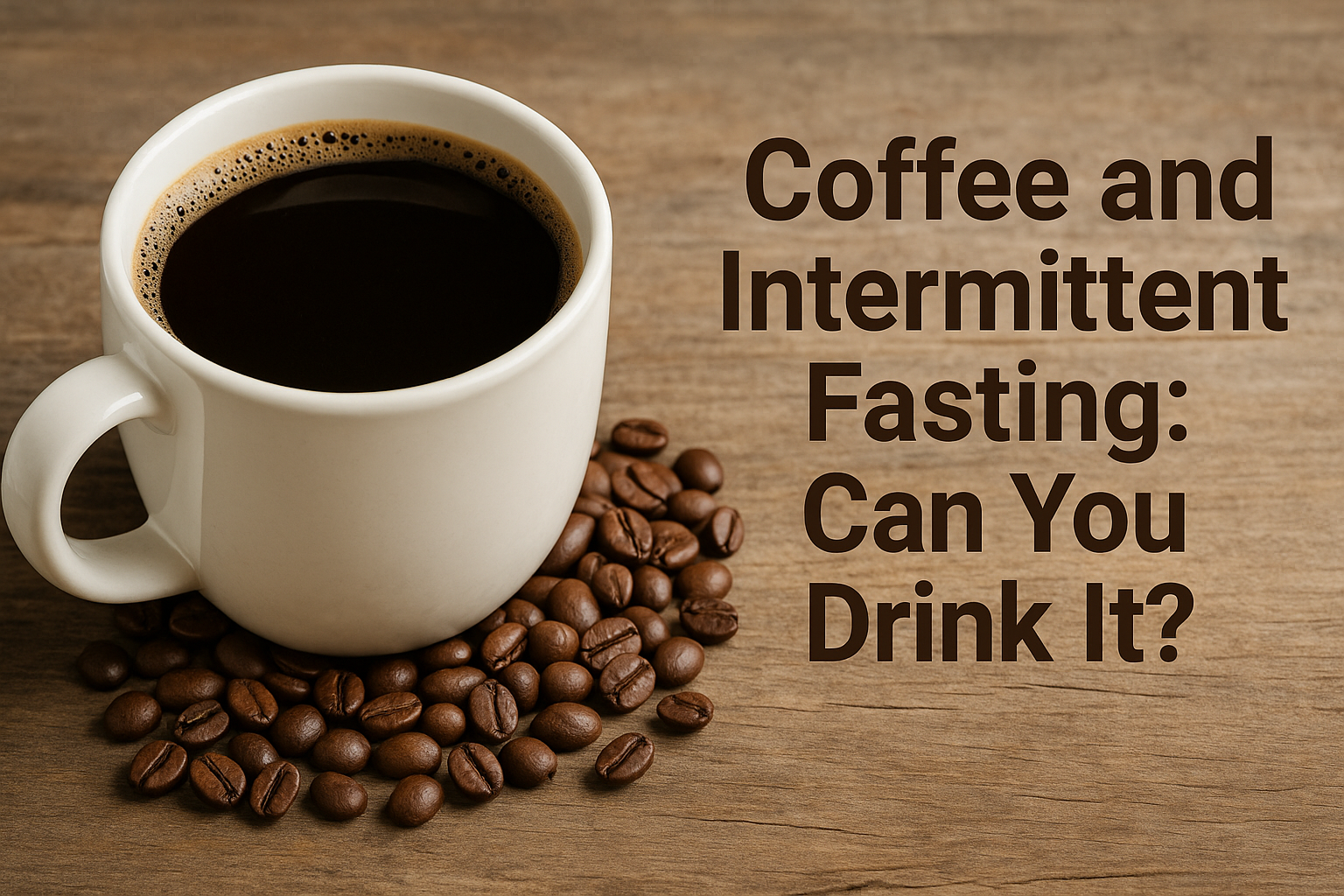Intermittent fasting has become one of the most popular approaches to health and wellness in recent years. People adopt fasting routines for different reasons—weight management, improved metabolism, increased energy, or even cellular repair.
But one question that often arises is whether drinking coffee during fasting periods is allowed. Does coffee break a fast, or can it be part of the fasting routine without interfering with the benefits?
The short answer is that coffee can be enjoyed during intermittent fasting, but with important conditions. The way you prepare your coffee, and what you add to it, determines whether it supports or disrupts your fasting goals.
What Is Intermittent Fasting?
Intermittent fasting (often shortened to IF) is not a diet but rather a pattern of eating that alternates between periods of fasting and eating. Some of the most common methods include:
- 16/8 method: Fast for 16 hours and eat during an 8-hour window.
- 5:2 method: Eat normally for 5 days, then restrict calories to around 500–600 on 2 days.
- Alternate-day fasting: Fast every other day.
During fasting, the body is encouraged to regulate insulin levels, burn stored fat for energy, and activate processes such as autophagy, where damaged cells are repaired. Consuming foods or drinks that provide calories can interrupt these benefits.
Does Coffee Break a Fast?
Plain black coffee contains fewer than 5 calories per cup and virtually no protein, carbohydrates, or fat. Since it does not significantly affect blood sugar or insulin levels, black coffee does not break a fast.
In fact, many people find that coffee helps them stick to fasting by reducing hunger and increasing alertness.
However, the story changes if you add milk, cream, sugar, or flavored syrups. These additions introduce calories and can trigger an insulin response, which breaks the fast.
Benefits of Coffee During Fasting
Caffeine in coffee is a natural appetite suppressant. Drinking coffee while fasting can help reduce feelings of hunger and make fasting periods easier to manage.
Coffee stimulates the central nervous system, helping you feel more awake and focused. This is particularly useful for people who fast in the morning and need energy for work or exercise.
Caffeine can slightly increase metabolic rate and promote fat oxidation. This aligns with the fat-burning effects of intermittent fasting, making the two a supportive pair.
Coffee contains antioxidants such as chlorogenic acids, which help protect cells and reduce inflammation. During fasting, when food intake is restricted, these compounds can provide extra health benefits.
What Breaks a Fast in Coffee
To maintain the benefits of fasting, it’s important to avoid certain additions:
- Sugar: Even a small amount provides calories and spikes insulin.
- Milk and cream: Dairy contains proteins, fats, and sugars that break a fast.
- Flavored syrups: These are loaded with sugar and additives.
- Bulletproof coffee (butter or MCT oil): While popular in keto diets, it contains significant calories, which means it technically breaks a fast.
Acceptable Additions for Coffee During Fasting
If drinking black coffee is too harsh, there are minimal-calorie options that may not significantly interfere with fasting, especially if your primary goal is weight management rather than strict autophagy.
- Cinnamon: Adds flavor without calories and may help regulate blood sugar.
- Stevia or monk fruit: Natural, calorie-free sweeteners that do not raise insulin.
- A splash of unsweetened almond milk: While not calorie-free, small amounts have less impact than dairy.
Tips for Drinking Coffee While Fasting
- Stick to black coffee as often as possible for the best results.
- Limit your intake to avoid side effects like jitters, dehydration, or stomach discomfort.
- Drink water alongside coffee to stay hydrated, since coffee can have a mild diuretic effect.
- Time your coffee wisely—many people enjoy it in the morning to help them through fasting hours, but avoid late consumption if it disrupts your sleep.
- Experiment with tolerance. Some people find coffee increases acid reflux or irritates their stomach on an empty stomach. Adjust according to your comfort.
Coffee After the Fasting Window
Once your eating window begins, you have more flexibility. You can enjoy lattes, cappuccinos, or coffee with milk, cream, and natural sweeteners without worrying about breaking the fast.
Many people look forward to their first creamy coffee as part of their first meal of the day.
Common Myths About Coffee and Fasting
- “All coffee breaks a fast”: This is not true. Black coffee is widely accepted as safe during fasting.
- “Decaf coffee is useless during fasting”: While lower in caffeine, decaf still contains antioxidants and can provide appetite control.
- “Coffee prevents autophagy”: Research suggests coffee may actually stimulate autophagy and enhance fasting benefits.
Final Thoughts
Coffee and intermittent fasting can complement each other when done correctly. Black coffee does not break a fast and may even enhance fasting benefits such as fat burning, mental clarity, and appetite control.
The key is avoiding high-calorie additions like sugar, cream, or syrups until your eating window begins.
If you enjoy coffee, there is no reason to give it up while practicing intermittent fasting. Instead, use it as a tool to make fasting more enjoyable and sustainable. With the right approach, coffee can be a valuable ally in your intermittent fasting journey.
